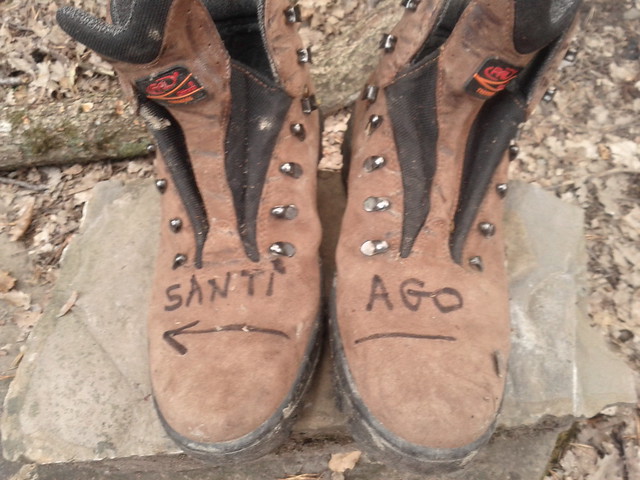I went to a funeral today.
I feel like I write a lot about going to funerals. I wish I didn’t have the opportunity. But I do, and they make me think. This was the first funeral I’ve been to in the years since I left the catholic church where I wasn’t one of the primary mourners. My granduncle died. Though I loved him dearly, I am neither his daughter nor his granddaughter. I had the space to think a little about what was happening, about what I found beautiful and comforting and what I did not.
Being at a mass is difficult. I have such profoundly negative feelings towards the catholic church, but I respect the fact that this is a church to which my uncle was incredibly devoted. There’s a very fine line between attending, showing respect and expressing grief for the person I love, and not being dishonest about my own position. So I do what a lot of people do: I attend, I sit quietly on a pew, I listen to the words being said and try to focus on the reminiscences and individual meanings. I do not kneel when asked, though, and I do not say any prayers. I’m the only person I can see who can kneel who isn’t. That feels strange, and I feel so self-conscious. I think my integrity needs me to not kneel, though. I don’t go for Communion. I do shake hands when this is offered- but I always meet someone’s eyes with a question before shaking hands with them, and am happy to smile instead. Because I do want to share solidarity and compassion, and because I don’t want to foist unwanted contact on anyone. I feel like my integrity demands that I do this, too. I feel profoundly aware that I am not a Catholic.
I listen to the singing. It’s beautiful. I will never deny the aching, tragic beauty and hope of the requiem. The choir are people my uncle sang with for decades. Their voices are strong and clear, just like his was. Listening, I think about how so much of religion is based on this moment- when we acknowledge that everything and everyone must end, when we grieve and ache and we long to create and communicate what they meant and who they were. How much of it is simply the impossibility of reconciling this.
Then they talk about his life, about all the things that he did- about his love of sport and his time as President of Richmond Rugby Club, about his devotion to his family. His love of music, his skill as a carpenter, the love he shared with his wife. And then they say that with a life so well lived, he will surely be rewarded generously after his death. And I think that they’ve missed the point. The huge, beautiful point that a life so well lived rewards itself so many times over, that the things and people to which he was devoted must have been such a rich and beautiful reward for him. The hundreds of people who came to his funeral, the deep love in their grief, the stories they all had- isn’t this the reward? Can’t we just celebrate and grieve a life?
But I don’t say any of this, because I know his faith was as important to him as all of the rest of it. And I know that he probably spent his last moments looking forward to reuniting with the people who he loved who have already gone. And in my own way I do respect that. More than that, I do understand it. There were moments at that mass, when the priest described what those reunions much be like, that I let myself imagine them. In those moments, I longed for it to be true. I don’t believe, but I do understand.
And then we are at the grave. It is bitterly cold, the noise of the wind through the trees almost drowning out our voices. Until one person starts to sing, and another, and another. And in the cold and the rain, huddled together against the biting wind, we raise our voices in sadness, in joy, and in love.
In that moment I realise that this is what we do. We comfort each other and we love each other. When we are dying and in pain, we take away the pain and we sit with and hold and comfort each other. When we are scared, we stand with each other and we hold each other. When we grieve, we stand together, we make endless cups of tea, and we love each other. In that moment, I know that that’s enough.
00


